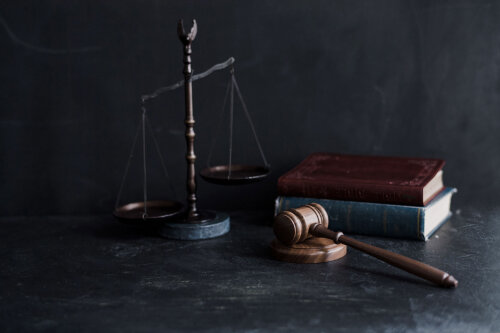Best Criminal Litigation Lawyers in Canada
Share your needs with us, get contacted by law firms.
Free. Takes 2 min.
Or refine your search by selecting a city:
List of the best lawyers in Canada
About Criminal Litigation Law in Canada
Criminal Litigation in Canada is a legal process where the government prosecutes an individual or entity accused of violating criminal law. The legal framework is designed to maintain social order, protect citizens, and ensure justice is served. The Canadian Criminal Code outlines the various criminal offenses and associated penalties. The litigation process involves multiple stages, including investigation, charges being laid, trials, and sentencing. Understanding the complexities of this process can be crucial for anyone involved in such cases.
Why You May Need a Lawyer
There are several reasons you might need a lawyer specializing in criminal litigation. If you are accused of a crime, legal representation ensures your rights are protected, and that you have a fair trial. You may also need a lawyer if:
- You are under criminal investigation.
- You have been arrested or formally charged with a crime.
- You wish to file an appeal following a conviction.
- You require legal advice for interacting with law enforcement.
- You are a victim or witness requiring guidance through the criminal justice process.
- You need representation for sentencing or parole hearings.
Local Laws Overview
Canada's Criminal Code, a federal statute, outlines criminal offenses, procedures, and sanctions applicable across all provinces. Key aspects include:
- Criminal Offenses: Categories include summary offenses (less severe, with lighter penalties) and indictable offenses (more serious, with harsher penalties).
- Legal Rights: Individuals have rights under the Charter of Rights and Freedoms, such as the right to a fair trial and protection against unlawful detention.
- Due Process: Ensures fairness through impartial tribunals and the presumption of innocence until proven guilty.
- Police Powers and Limitations: Governed by legislation to balance enforcement with individual rights.
- Sentencing Principles: Aim to deter crime, protect the community, and rehabilitate offenders.
Frequently Asked Questions
1. What should I do if I am arrested?
Remain calm and exercise your right to remain silent. Request to speak to a lawyer immediately.
2. What happens after I am charged with a crime?
You'll be given a court date for a first appearance. It's crucial to seek legal representation to navigate proceedings effectively.
3. What is bail, and how does it work?
Bail allows for temporary release before trial under certain conditions. It's determined by a judge based on factors like flight risk and public safety.
4. How long does the criminal litigation process take?
Duration varies depending on the complexity of the case, jurisdiction, and whether it goes to trial. It can range from months to years.
5. Can a lawyer help if I'm guilty?
Yes, a lawyer ensures your rights are upheld, negotiates plea deals, and advocates for fair sentencing.
6. What is a plea bargain?
An agreement where the defendant pleads guilty to a lesser charge in exchange for reduced penalties. It can expedite resolutions and avoid trials.
7. Do I have to testify in my defense?
No, you have the right to remain silent, and the prosecution must prove guilt beyond a reasonable doubt without your testimony.
8. Can I appeal a conviction?
Yes, you can appeal a conviction or sentence, but there are strict time limits and requirements that must be met.
9. What is the role of a defense lawyer?
To provide guidance, protect your legal rights, build a defense strategy, represent you in court, and negotiate on your behalf.
10. What are my rights during a police interrogation?
You have the right to remain silent and request a lawyer present during questioning.
Additional Resources
For more information, you can contact or consult the following resources:
- Legal Aid services in your province for free or low-cost legal help.
- The Canadian Bar Association for lawyer referrals and resources.
- Government websites such as the Department of Justice Canada for legal information and resources.
- Local law libraries for access to criminal law texts and publications.
Next Steps
If you require legal assistance in Criminal Litigation:
- Contact a qualified criminal defense lawyer for a consultation. It's important to choose someone experienced in handling cases like yours.
- Gather all relevant documentation, including any police reports, court notices, and correspondence.
- Prepare questions or concerns you have about your case to discuss with your lawyer.
- Follow your lawyer's advice on the next steps, which may include attending court appearances, gathering evidence, or preparing statements.
Remember, having legal counsel is vital when navigating the complexities of the criminal justice system.
Lawzana helps you find the best lawyers and law firms in Canada through a curated and pre-screened list of qualified legal professionals. Our platform offers rankings and detailed profiles of attorneys and law firms, allowing you to compare based on practice areas, including Criminal Litigation, experience, and client feedback.
Each profile includes a description of the firm's areas of practice, client reviews, team members and partners, year of establishment, spoken languages, office locations, contact information, social media presence, and any published articles or resources. Most firms on our platform speak English and are experienced in both local and international legal matters.
Get a quote from top-rated law firms in Canada — quickly, securely, and without unnecessary hassle.
Disclaimer:
The information provided on this page is for general informational purposes only and does not constitute legal advice. While we strive to ensure the accuracy and relevance of the content, legal information may change over time, and interpretations of the law can vary. You should always consult with a qualified legal professional for advice specific to your situation.
We disclaim all liability for actions taken or not taken based on the content of this page. If you believe any information is incorrect or outdated, please contact us, and we will review and update it where appropriate.
Browse criminal litigation law firms by city in Canada
Refine your search by selecting a city.














